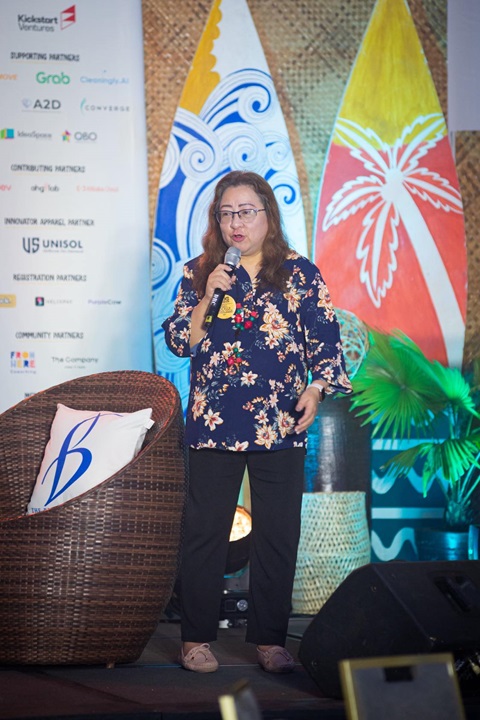
The Department of Information and Communications Technology (DICT) has reiterated its commitment to elevating the Startup ecosystem as one of the top economic drivers for the Philippines.
Speaking before a gathering of over 500 delegates at the recently concluded “6th Geeks on A Beach” (GOAB 2023) held in Panglao Island Bohol, DICT Undersecretary for ICT Industry Development, Atty. Jocelle Batapa-Sigue emphasized the importance of advancing initiatives geared toward unlocking the full potential of startup communities in the Philippines.
Sigue cited a recently released “Startup Blink Report” indicating the Philippines ranked 59th in the international arena globally. While the Philippines maintains its place as the sixth-ranked among Asian countries, “we also have been noted by the World Bank as having one of the most dynamic economies in East Asia and the Pacific Regions.”
“These encouraging reports,” Sigue said, “should be reinforced with strong support not just from the government (both local and national government units) but also from other sectors like the academe, and the private sector.”
Sigue reported that the DICT is actively expanding and enhancing the startup ecosystem. Their efforts include creating opportunities for both emerging and established startups. Notably, DICT introduced the Digital Startup Development and Acceleration Program (DSDAP) as part of their comprehensive strategy.
DSDAP’s goal is to establish a strong Philippine Startup ecosystem by providing support that will enrich and strengthen the competitive advantage of Filipino startups.
One of the key projects of the DSDAP is the Philippine Startup Challenge (PSC), an annual startup pitching competition that aims to encourage and support Filipinos in creating innovative and relevant ICT products and services that can be developed into viable business ventures and/or solve social problems.
“This challenge (PSC) hopes to promote the spirit of entrepreneurship in ICT [information and communications technology] among the Filipino Youth and to ensure the continuous flow and creation of ideas and startup founders that will expand the country’s startup ecosystem,” Sigue said.
DICT reported that for the 8th iteration, the PSC received 626 applications from 158 schools and universities nationwide. The top 10 selected startups will compete in its Final Round happening this coming December 2023 in Cebu City.
This year, DICT has allotted funds, coaching, and mentoring to support promising startups recognized for their potential to attract global venture capitalists or VCs. This initiative is facilitated through the Startup Grant Fund, demonstrating the department’s commitment to nurturing and propelling aspiring entrepreneurs onto the global stage.
The Startup Grant Fund provides equity-free financial and informational support for potential startups across the Philippines. This will enable them to access starter funds and move up to the “investible level” where international capitalists here and abroad will be interested in funneling in more funds to further develop their products.
Sigue added that the startup grant fund gives full or partial subsidies from P500,000 to P1 million with mentoring, coaching, and earned networks under the duration of the project. Eligible startups under this grant are those who either have their proof of concept to prototype phase, or prototype to minimum viable product stage.
According to Sigue, DICT has received a total of 94 applications from across the Philippines, expressing interest in availing of the grant. Based on DICT’s latest record, the Philippines startup ecosystem has registered more than 1,000 active startups, over 60 incubators and accelerators, more than 200 co-working spaces establishments, at least 50 angel investors, and some 40 venture capitalists.
A startup is a young company that innovates technologies—or applies existing technologies in innovative ways—to provide a new product or service. The early stages of a startup’s development are therefore focused on innovation, design, prototyping, and testing; and often with minimal or no revenue stream. While traditional companies apply a standard business model, a startup creates a new model.
Gradual improvements in the ecosystem have helped Philippine startups grow over the past decade. Interest and investment have become more pronounced in the last few years, possibly as part of a pandemic push that underscored the need for digital transformation.
In 2021, a total of US$858 million was invested in Philippine startups, more than the combined total of US$803 million from 2018 to 2020.

